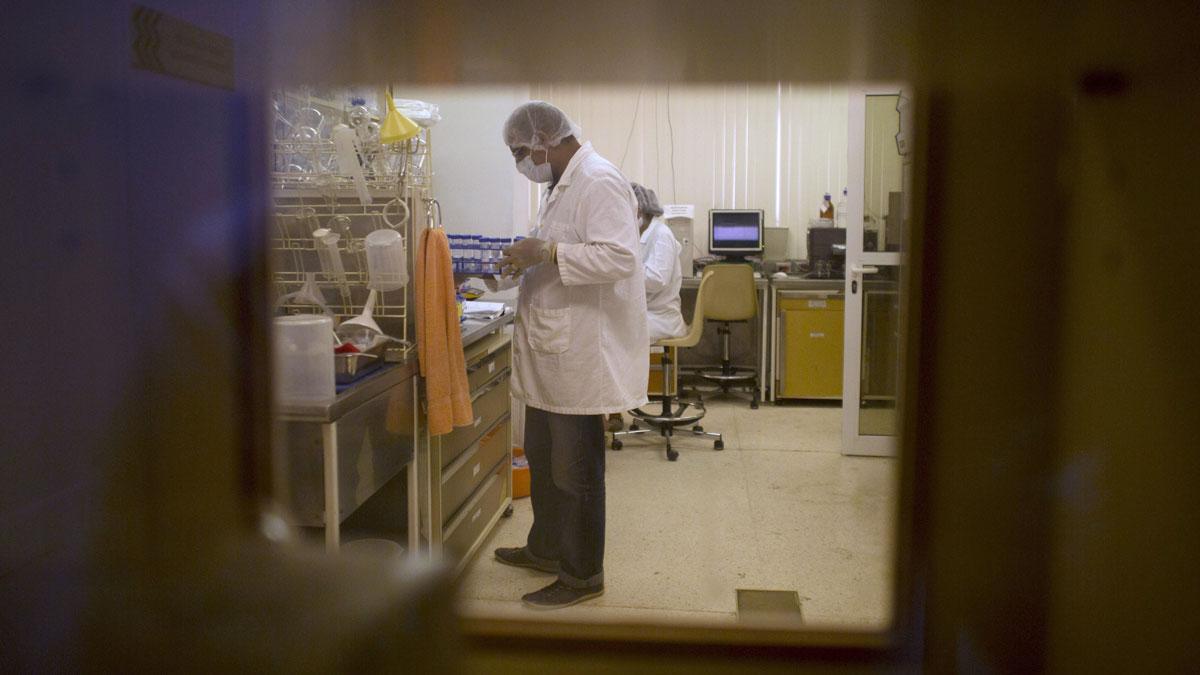Researchers, seen through a window, work at Cuba's Center for Genetic Engineering and Biotechnology in Havana, 2015.
For years, Cuba’s Fidel Castro invested in the creation of the country's own medical industrial complex. Now Cuba is considered to be a major developer of vaccines and other important medical treatments.
Jose DiFabio, who was Cuba’s representative for the Pan American Health Organization, says the isolated Communist country invested in medical research out of neccessity.
“Cuba considered medical science as a responsibility it had to move into and that’s why it created a very large medical and scientific workforce,” says DiFabio.
A major driver was the US embargo, which limited Cuba’s ability to import medicine, he says.
“The priority was to have the medicines required and also the vaccines required and the biotechnology products required for the population."
One effort yielded Cuba's own hepatitis B vaccine in the 1980s.
“Almost all of the country’s population has been vaccinated," he says. "Probably Cuba will be the first country to eliminate hepatitis B.”
Currently Cuba has long been developing a vaccine for lung cancer, CimaVax, which many US researchers are interested in testing.
“It a vaccine directed against a protein that is involved with growth of cells,” says DiFabio.
He added that more research is being done on this vaccine to treat other cancers.
“Those cancers that are somehow related could be treated with CimaVax,” he says.
Some of the medical developments promise immediate help, DiFabio says. An example: a cream used for diabetic foot ulcers. It has already been used on 150,000 patients worldwide.
“Amputations are avoided,” he says.
Every day, reporters and producers at The World are hard at work bringing you human-centered news from across the globe. But we can’t do it without you. We need your support to ensure we can continue this work for another year.
Make a gift today, and you’ll help us unlock a matching gift of $67,000!
